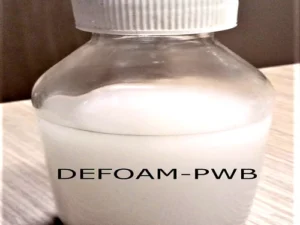Description
The Unsung Heroes of Everyday Life: Understanding Coating Agents
We interact with them every day, often without even realizing it. They protect our pills, make our furniture shine, and even keep our food looking fresh. They are coating agents, versatile substances that play a vital role in a multitude of industries, from pharmaceuticals and food to furniture and construction. But what exactly are coating agents, and why are they so important?
What are Coating Agents?
Simply put, a coating agent is a substance applied to the surface of another material to form a thin, protective, decorative, or functional layer. This layer can be composed of natural or synthetic materials and is designed to modify the surface properties of the substrate (the underlying material) in various ways. These modifications can include:
- Protection: Shielding the substrate from environmental factors like moisture, UV radiation, oxidation, and abrasion.
- Appearance: Enhancing the visual appeal of the substrate with color, gloss, and texture.
- Functionality: Imparting specific properties to the substrate, such as controlled release, increased conductivity, or improved adhesion.
A Diverse Range of Applications
The versatility of coating agents allows them to be utilized in a wide array of applications. Here are just a few examples:
- Pharmaceuticals: Coating pills and tablets with polymers to control the release of medication, mask unpleasant tastes, and protect the active ingredients from degradation. Think of enteric coatings that allow drugs to bypass stomach acid and dissolve in the intestine.
- Food Industry: Applying edible coatings to fruits and vegetables to extend shelf life, prevent moisture loss, and improve appearance. These coatings often consist of waxes, proteins, or polysaccharides.
- Furniture and Woodworking: Using varnishes, lacquers, and paints to protect wood surfaces from scratches, moisture, and UV damage, while also enhancing their aesthetic appeal.
- Construction: Applying protective coatings to buildings, bridges, and other structures to prevent corrosion, weathering, and damage from environmental pollutants.
- Automotive Industry: Using paints and clear coats to protect car bodies from rust, scratches, and UV damage, while also providing a vibrant and durable finish.
- Electronics: Applying conformal coatings to circuit boards to protect them from moisture, dust, and other contaminants, ensuring reliable performance.
Types of Coating Agents
The specific type of coating agent used depends on the application and the desired properties. Some common categories include:
- Polymers: These are large molecules that form a flexible and durable film. Examples include acrylics, polyurethanes, and epoxies.
- Waxes: Waxes provide a water-resistant and glossy finish. They are often used in food applications and for polishing surfaces.
- Oils: Oils can provide protection against moisture and can enhance the appearance of wood and other materials.
- Metals: Metallic coatings offer excellent protection against corrosion and can also provide decorative finishes.
- ** Ceramics:** Ceramic coatings are extremely durable and resistant to high temperatures and abrasion.
The Future of Coating Agents
The field of coating agents is constantly evolving, driven by the need for more sustainable, durable, and functional materials. Current research is focused on developing:
- Environmentally friendly coatings: Using bio-based materials and reducing the use of volatile organic compounds (VOCs).
- Smart coatings: Coatings that can respond to environmental stimuli, such as changes in temperature or pH.
- Self-healing coatings: Coatings that can repair themselves when damaged, extending the lifespan of the coated material.
- Nanocoatings: Utilizing nanotechnology to create extremely thin and highly effective coatings with unique properties.
Conclusion
Coating agents are essential materials that play a vital role in protecting, enhancing, and functionalizing a wide range of products and structures. From the pills we swallow to the cars we drive, these unsung heroes contribute significantly to our everyday lives. As technology advances, the field of coating agents will continue to evolve, leading to innovative solutions that address the challenges of the 21st century. So, the next time you admire the shine on your furniture or appreciate the long shelf life of your favorite fruit, remember the crucial role played by the often-invisible world of coating agents.










Reviews
There are no reviews yet.